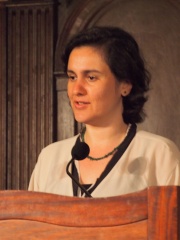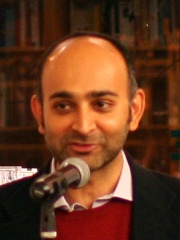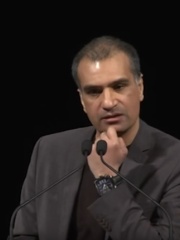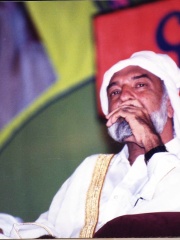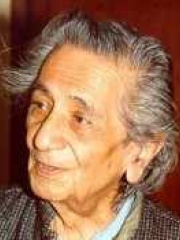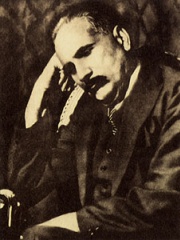
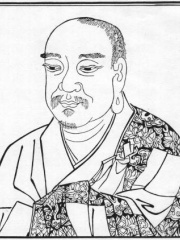
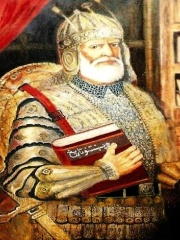
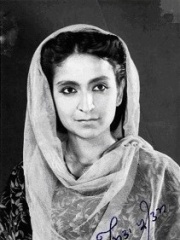
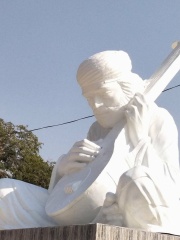
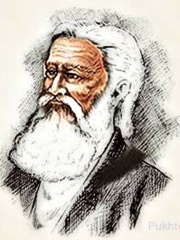
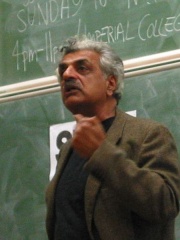
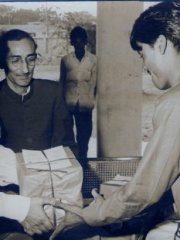
The Most Famous
WRITERS from Pakistan
Top 10
The following people are considered by Pantheon to be the top 10 most legendary Pakistani Writers of all time. This list of famous Pakistani Writers is sorted by HPI (Historical Popularity Index), a metric that aggregates information on a biography's online popularity. Visit the rankings page to view the entire list of Pakistani Writers.

1. Muhammad Iqbal (1877 - 1938)
With an HPI of 80.65, Muhammad Iqbal is the most famous Pakistani Writer. His biography has been translated into 85 different languages on wikipedia.
Sir Muhammad Iqbal (9 November 1877 – 21 April 1938) was an Islamic philosopher and poet. His poetry in Urdu is considered to be among the greatest of the 20th century, and his vision of a cultural and political ideal for the Muslims of British India is widely regarded as having animated the impulse for the Pakistan Movement. He is commonly referred to by the honorific Allamah (Persian: علامه, transl. "learned") and widely considered one of the most important and influential Muslim thinkers and Islamic religious philosophers of the 20th century. Iqbal was born and raised in Sialkot, Punjab, British India and studied at Scotch Mission College in Sialkot and Government College in Lahore. He taught Arabic at the Oriental College, Lahore, from 1899 until 1903, during which time he wrote prolifically. Notable among his Urdu poems from this period are "Parinde Ki Faryad" ("A Bird's Prayer"), an early contemplation on animal rights, and "Tarana-e-Hindi" ("Anthem of the Indians"), a patriotic poem—both composed for children. In 1905, he departed from India to pursue further education in Europe, first in England and later in Germany. In England, he earned a second BA at Trinity College, Cambridge, and subsequently qualified as a barrister at Lincoln's Inn. In Germany, he obtained a PhD in philosophy at the University of Munich, with his thesis focusing on "The Development of Metaphysics in Persia" in 1908. Upon his return to Lahore in 1908, Iqbal established a law practice but primarily focused on producing scholarly works on politics, economics, history, philosophy, and religion. He is most renowned for his poetic compositions, including "Asrar-e-Khudi," "Rumuz-e-Bekhudi," and "Bang-e-Dara." His literary works in the Persian language garnered him recognition in Iran. An ardent proponent of the political and spiritual revival of the Muslim world, particularly of the Muslims in the Indian subcontinent, the series of lectures Iqbal delivered to this effect were published as The Reconstruction of Religious Thought in Islam in 1930. He was elected to the Punjab Legislative Council in 1927 and held several positions in the All-India Muslim League. In his Allahabad Address, delivered at the League's annual assembly in 1930, he formulated a political framework for the Muslim-majority regions spanning northwestern India, spurring the League's pursuit of the two-nation theory. In August 1947, nine years after Iqbal's death, the partition of India gave way to the establishment of Pakistan, a newly independent Islamic state in which Iqbal was honoured as the national poet. He is also known in Pakistani society as Hakim ul-Ummat (lit. 'The Wise Man of the Ummah') and as Mufakkir-e-Pakistan (lit. 'The Thinker of Pakistan'). The anniversary of his birth (Youm-e Weladat-e Muḥammad Iqbal), 9 November, is observed as a public holiday in Pakistan.

2. Vasubandhu (400 - 400)
With an HPI of 72.33, Vasubandhu is the 2nd most famous Pakistani Writer. His biography has been translated into 43 different languages.
Vasubandhu (traditional Chinese: 世親; ; pinyin: Shìqīn; Tibetan: དབྱིག་གཉེན་ Wylie: dbyig gnyen; fl. 4th to 5th century CE) was an influential Indian Buddhist monk and scholar. He was a philosopher who wrote commentary on the Abhidharma, from the perspectives of the Sarvastivada and Sautrāntika schools. After his conversion to Mahayana Buddhism, along with his half-brother, Asanga, he was also one of the main founders of the Yogacara school. Vasubandhu's Abhidharmakośakārikā ("Commentary on the Treasury of the Abhidharma") is widely used in Tibetan and East Asian Buddhism, as the major source for non-Mahayana Abhidharma philosophy. His philosophical verse works set forth the standard for the Indian Yogacara metaphysics of "appearance only" (vijñapti-mātra), which has been described as a form of "epistemological idealism", phenomenology and close to Immanuel Kant's transcendental idealism. Apart from this, he wrote several commentaries, works on logic, argumentation and devotional poetry. Vasubandhu is one of the most influential thinkers in the Indian Buddhist philosophical tradition. Because of their association with Nalanda university, Vasubandhu and Asanga are amongst the so-called Seventeen Nalanda Masters. In Jōdo Shinshū, he is considered the Second Patriarch; in Chan Buddhism, he is the 21st Patriarch.

3. Khushal Khattak (1613 - 1689)
With an HPI of 66.86, Khushal Khattak is the 3rd most famous Pakistani Writer. His biography has been translated into 29 different languages.
Khushal Khan Khattak (Pashto: خوشال خان خټک; Persian: خوشحالخان ختک; 1613 – 20 February 1689), also known as Khushal Baba (Pashto: خوشال بابا), was a 17th-century Afghan Pashtun poet, chief, and warrior. Khushal Khan served the Mughal Empire protecting them from Pashtun warriors over most of his lifespan. After being expelled from his tribal chiefdom and replaced with his son by his Mughal superiors, Khushal Khan turned against the Mughals. Afterwards, Khushal preached the union of all Pashtuns, and encouraged revolt against the Mughal Empire, promoting Pashtun nationalism in the last years of his life through poetry. Much of Khushal's poetry is in Pashto but some is also in Persian. Khushal is considered the "father of Pashto literature" and the national poet of Afghanistan. Khushal's life was spent in serving the Mughal emperor and in his last years he struggled against the Mughal Empire who had fluctuating relations with the Pashtuns of Khyber Pakhtunkhwa (in present-day Pakistan) and Zabulistan (present-day Afghanistan). In order to restore his position as chief, Khushal challenged the powers of the Mughal emperor Aurangzeb and defeated the Mughal troops in many engagements. He was a renowned warrior who became known as a "Pashtun warrior-poet". The stand and fight attitude of Khushal was an important stance in Pashtun history, and his opinions and ideas form a new stage in the ideological and intellectual development of the Pashtuns. Besides poetry and prose works, Khushal also wrote various translations from Persian and Arabic into Pashto. He later died in Tirah (in present-day Khyber District of Pakistan).

4. Amrita Pritam (1919 - 2005)
With an HPI of 62.74, Amrita Pritam is the 4th most famous Pakistani Writer. Her biography has been translated into 50 different languages.
Amrita Pritam ([əm.mɾɪt̪ɑː pɾiːt̪əm] ; 31 August 1919 – 31 October 2005) was an Indian novelist, essayist and poet, who wrote in Punjabi and Hindi. A prominent figure in Punjabi literature, she is the recipient of the 1956 Sahitya Akademi Award. Her body of work comprised over 100 books of poetry, fiction, biographies, essays, a collection of Punjabi folk songs and an autobiography that were all translated into several Indian and foreign languages. Pritam is best remembered for her poignant poem, Ajj aakhaan Waris Shah nu (Today I invoke Waris Shah – "Ode to Waris Shah"), an elegy to the 18th-century Punjabi poet, and an expression of her anguish over massacres during the partition of British India. As a novelist, her most noted work was Pinjar ("The Skeleton", 1950), in which she created her memorable character, Puro, an epitome of violence against women, loss of humanity and ultimate surrender to existential fate; the novel was made into an award-winning film, Pinjar (2003). When British India was partitioned into the independent states of India and Pakistan in 1947, she migrated from Lahore to India, though she remained equally popular in Pakistan throughout her life, as compared to her contemporaries like Mohan Singh and Shiv Kumar Batalvi. Pritam's magnum opus, the long poem Sunehade, won her the 1956 Sahitya Akademi Award, making her the first and the only woman to have been given the award for a work in Punjabi. She received the Jnanpith Award, one of India's highest literary awards, in 1982 for Kagaz Te Canvas ("The Paper and the Canvas"). She was awarded the Padma Shri in 1969, and the Padma Vibhushan, India's second highest civilian award, in 2004. In that same year she was honoured with India's highest literary award given by the Sahitya Akademi (India's Academy of Letters), the Sahitya Akademi Fellowship, awarded to the "immortals of literature" for lifetime achievement.
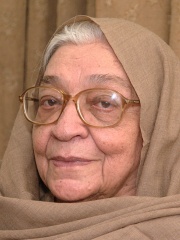
5. Krishna Sobti (1925 - 2019)
With an HPI of 62.45, Krishna Sobti is the 5th most famous Pakistani Writer. Her biography has been translated into 29 different languages.
Krishna Sobti (18 February 1925 – 25 January 2019) was an Indian Hindi-language fiction writer and essayist. She won the Sahitya Akademi Award in 1980 for her novel Zindaginama and in 1996, was awarded the Sahitya Akademi Fellowship, the highest award of the Akademi. In 2017, she received the Jnanpith Award for her contribution to Indian literature. Sobti is best known for her 1966 novel Mitro Marajani, an unapologetic portrayal of a married woman's sexuality. She was also the recipient of the first Katha Chudamani Award, in 1999, for Lifetime Literary Achievement, apart from winning the Shiromani Award in 1981, Hindi Academy Award in 1982, Shalaka Award of the Hindi Academy Delhi and in 2008, her novel Samay Sargam was selected for Vyas Samman, instituted by the K. K. Birla Foundation. Considered the grande dame of Hindi literature, Krishna Sobti was born in Gujrat, Punjab, now in Pakistan; she also wrote under the name Hashmat and has published Hum Hashmat, a compilation of pen portraits of writers and friends. Her other novels are Daar Se Bichchuri, Surajmukhi Andhere Ke, Yaaron Ke Yaar, Zindaginama. Some of her well-known short stories are Nafisa, Sikka Badal gaya, Badalom ke ghere. A selection of her major works are published in Sobti Eka Sohabata. A number of her works are now available in English and Urdu. In 2005, Dil-o-Danish, translated into The Heart Has Its Reasons in English by Reema Anand and Meenakshi Swami of Katha Books, won the Crossword Award in the Indian Language Fiction Translation category. Her publications have been translated to multiple Indian and foreign languages such as Swedish, Russian and English.

6. Shah Abdul Latif Bhittai (1690 - 1751)
With an HPI of 61.37, Shah Abdul Latif Bhittai is the 6th most famous Pakistani Writer. His biography has been translated into 16 different languages.
Shah Abdul Latif Bhittai (Sindhi: شاه عبداللطيف ڀٽائي; 1689/1690 – 21 December 1752), commonly known by the honorifics Lakhino Latif, Latif Ghot, Bhittai, and Bhit Jo Shah, was a Sindhi Sufi mystic and poet from Sind, widely considered to be the greatest poet of the Sindhi language. Born to a Kazmi Sayyid family of Hala Haweli originating from Herat, near modern-day Hala, Bhittai grew up in the nearby town of Kotri Mughal. At the age of around 20, he left home and traveled throughout Sindh and neighboring lands, and met many mystics and Jogis, whose influence is evident in his poetry. Returning home after three years, he was married into an aristocratic family, but was widowed shortly afterwards and did not remarry. His piety and spirituality attracted a large following as well as the hostility of a few. Spending the last years of his life at Bhit (Bhit Shah), he died in 1752. A mausoleum was built over his grave in subsequent years and became a popular pilgrimage site. His poems were compiled by his disciples in his Shah Jo Risalo. It was first published in 1866. Several Urdu and English translations of the work have been published since. Bhittai's poetry is popular among the people of Sindh and he is venerated throughout the province.

7. Rahman Baba (1632 - 1706)
With an HPI of 61.33, Rahman Baba is the 7th most famous Pakistani Writer. His biography has been translated into 21 different languages.
Abdur Rahmān Momand (Pashto: عبدالرحمان بابا; c. 1632 – 1706) or Rahmān Bābā (Pashto: رحمان بابا), was a renowned Afghan Sufi Saint, member of Sufi Dervish and poet from Peshawar (present-day Khyber Pakhtunkhwa, Pakistan) during the Mughal era. He, along with his contemporary Khushal Khan Khattak, is considered among the most popular poets of the Pashto language. His poetry expresses the mystical side of Islam, in line with his Sufi-oriented nature.

8. Tariq Ali (b. 1943)
With an HPI of 59.15, Tariq Ali is the 8th most famous Pakistani Writer. His biography has been translated into 36 different languages.
Tariq Ali (;Urdu: طارق علی; born 21 October 1943) is a Pakistani-British political activist, writer, journalist, historian, filmmaker, and public intellectual. He is a member of the editorial committee of the New Left Review and Sin Permiso, and contributes to The Guardian, CounterPunch, and the London Review of Books. He read Philosophy, Politics, and Economics at Exeter College, Oxford. He is the author of many books, including Pakistan: Military Rule or People's Power (1970), Can Pakistan Survive? The Death of a State (1983), Clash of Fundamentalisms: Crusades, Jihads and Modernity (2002), Bush in Babylon (2003), Conversations with Edward Said (2005), Pirates of the Caribbean: Axis Of Hope (2006), The Duel (2008), The Obama Syndrome (2010), and The Extreme Centre: A Warning (2015).

9. Faiz Ahmad Faiz (1911 - 1984)
With an HPI of 57.45, Faiz Ahmad Faiz is the 9th most famous Pakistani Writer. His biography has been translated into 31 different languages.
Chaudhry Faiz Ahmad Faiz (13 February 1911 – 20 November 1984) was a Pakistani poet and author of Punjabi and Urdu literature. Faiz was one of the most celebrated, popular, and influential Urdu writers of his time, and his works and ideas remain widely influential in Pakistan, India and beyond. Outside of literature, he has been described as "a man of wide experience", having worked as a teacher, military officer, journalist, trade unionist, and broadcaster. Born in the Punjab Province, Faiz studied at Government College and Oriental College in Lahore and went on to serve in the British Indian Army. After the Partition of India, Faiz served as editor-in-chief of two major newspapers — the English language daily Pakistan Times and the Urdu daily Imroze. He was also a leading member of the Communist Party before his arrest and imprisonment in 1951 for his alleged part in a conspiracy to overthrow the Liaquat administration and replace it with a left-wing, pro-Soviet government. Faiz was released after four years in prison and spent time in Moscow and London, becoming a notable member of the Progressive Writers' Movement. After the downfall of military dictator Ayub Khan's government, and the Independence of Bangladesh, he worked as an aide to Zulfikar Ali Bhutto, but exiled himself to Beirut after Bhutto's execution at the hands of another military dictator Zia ul-Haq. Faiz was a well-known Marxist and is said to have been "a progressive who remained faithful to Marxism." Critics have noted that Faiz took the tenets of Marxism where Muhammad Iqbal had left it, and relayed it to a younger generation of Muslims who were considered more open to change, more receptive to egalitarianism, and had a greater concern for the poor. Literary critic Fateh Muhammad Malik argues that while initially Faiz was more of a secular Marxist he eventually subscribed to Islamic socialism as his life progressed, as his poems getting more religious in tone over the years demonstrate, even suggesting that Faiz ultimately aimed for an Islamic revolution, having endorsed the 1979 Iranian revolution. Faiz was the first Asian poet to be awarded the Lenin Peace Prize (1962) by the Soviet Union and was also nominated for the Nobel Prize in literature. He was posthumously honoured when the Pakistan Government conferred upon him the nation's highest civil award — the Nishan-e-Imtiaz — in 1990.
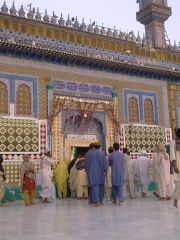
10. Sultan Bahu (1630 - 1691)
With an HPI of 55.98, Sultan Bahu is the 10th most famous Pakistani Writer. His biography has been translated into 17 different languages.
Sultan Bahu (also spelled as Sultan Bahoo; Punjabi: [sʊltaːn baːɦuː]; 17 January 1630 – 1 March 1691), was a Punjabi Muslim poet, Sufi, scholar, and historian of the 17th century. Renowned for his mystical poetry, he was active during the reigns of Mughal emperors Shah Jahan and Aurangzeb. Little is known about Bahu's life, other than what was written in a hagiography called Manaqib-i Sultani seven generations after Bahu's own time. According to these records, he was born in Shorkot into the Awan tribe. He was son of Bayazid Muhammad, an officer in the Mughal Army, and Rasti. He belonged to Qadiri Sufi order, and started the mystic tradition known as Sarwari Qadiri. More than forty books on Sufism are attributed to him (mostly written in Persian), largely dealing with specialised aspects of Islam and Islamic mysticism. However, it was his Punjabi poetry which had popular appeal and earned him lasting fame. His verses are sung in many genres of Sufi music, including qawwali and kafi, and tradition has established a unique style of singing his couplets.
People
Pantheon has 23 people classified as Pakistani writers born between 400 and 1991. Of these 23, 8 (34.78%) of them are still alive today. The most famous living Pakistani writers include Tariq Ali, Asma Barlas, and Hamid Mir. The most famous deceased Pakistani writers include Muhammad Iqbal, Vasubandhu, and Khushal Khattak. As of April 2024, 1 new Pakistani writers have been added to Pantheon including Sarah Haider.
Living Pakistani Writers
Go to all RankingsTariq Ali
1943 - Present
HPI: 59.15
Asma Barlas
1950 - Present
HPI: 51.30
Hamid Mir
1966 - Present
HPI: 46.72
Kamila Shamsie
1973 - Present
HPI: 44.33
Mohsin Hamid
1971 - Present
HPI: 40.77
Nadeem Aslam
1966 - Present
HPI: 40.61
Sabatina James
1982 - Present
HPI: 38.76
Sarah Haider
1991 - Present
HPI: 24.37
Deceased Pakistani Writers
Go to all RankingsMuhammad Iqbal
1877 - 1938
HPI: 80.65
Vasubandhu
400 - 400
HPI: 72.33
Khushal Khattak
1613 - 1689
HPI: 66.86
Amrita Pritam
1919 - 2005
HPI: 62.74
Krishna Sobti
1925 - 2019
HPI: 62.45
Shah Abdul Latif Bhittai
1690 - 1751
HPI: 61.37
Rahman Baba
1632 - 1706
HPI: 61.33
Faiz Ahmad Faiz
1911 - 1984
HPI: 57.45
Sultan Bahu
1630 - 1691
HPI: 55.98
Riaz Ahmed Gohar Shahi
1941 - 2010
HPI: 55.94
Bulleh Shah
1680 - 1757
HPI: 55.83
Bhisham Sahni
1915 - 2003
HPI: 52.99
Newly Added Pakistani Writers (2025)
Go to all RankingsOverlapping Lives
Which Writers were alive at the same time? This visualization shows the lifespans of the 8 most globally memorable Writers since 1700.



